The Premier is expected to brief seafood industry heads as the sector goes into crisis mode, with the coronavirus outbreak threatening the future of Queensland’s seafood trade.
The virtual shutdown in China of all fresh seafood markets has already seen mudcrab prices drop to an all-time low, with Burdekin commercial crabbers’ livelihoods at risk as they reportedly sell their catch for $30/kg less than what they normally would.
It’s the same for the Townsville tiger prawns industry and Bowen’s live coral trout sector, with all expecting a shutdown to last from four to six months at least.
Arabon Seafoods owner Terry Must said the majority of the Bowen fleet was geared for the live coral trout market, with a gross value of at lest $30 million, and relies heavily on Chinese demand.
The Chinese market has a strong emphasis on freshness, which has led to the development of markets for live seafood, such as coral trout and lobster.
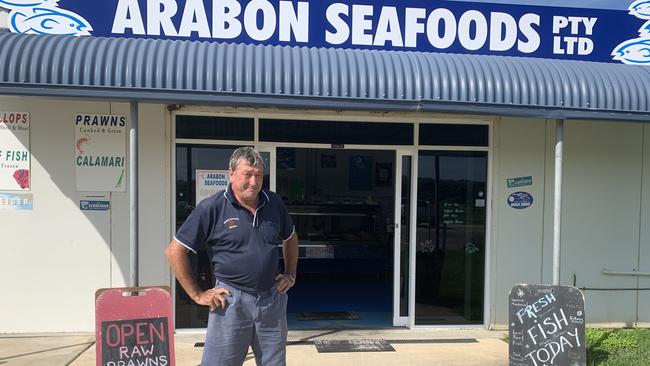
Since the outbreak of coronavirus, more than 20,000 cases had been confirmed in China while 425 people had died, Chinese state media reported. The most populous country has since gone into lockdown, leading to a major drop in the seafood market.
“Ninety-seven per cent of fishermen will stop fishing,” Mr Must said.
He said the local markets would be well stocked, which will most likely lead to prices decreasing.
While some fisheries may be able to rely on domestic sales, Mr Must said that annually only a small percentage of his live coral trout are sent domestically, to Sydney or Melbourne.
Mr Must says the demand for live fish meant that boats switched from refrigeration to salt water tanks, and now don’t have the capability to store frozen fish.
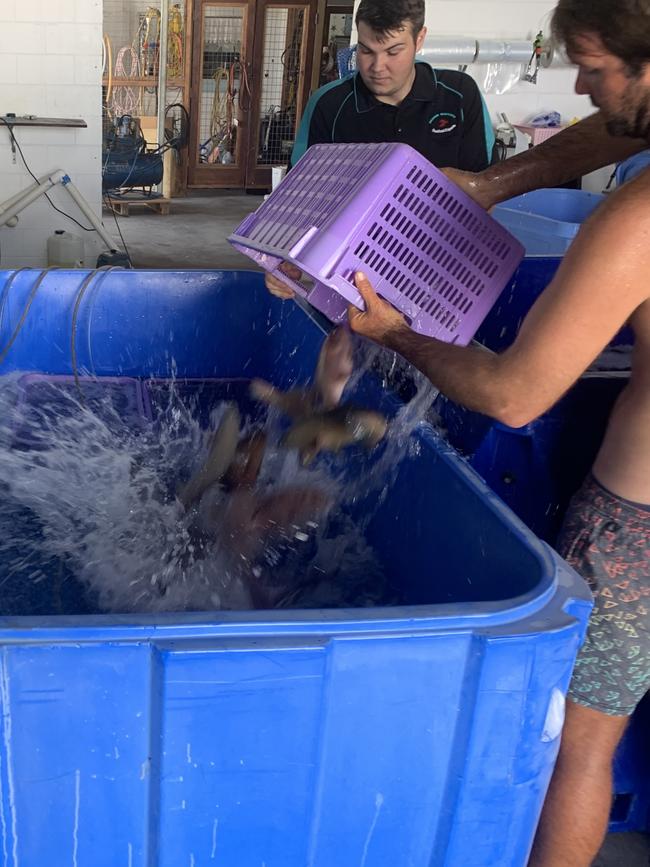
“At least 75 per cent of the boats don’t have the ability to go back to the old way; they are going to have to stay in port, they cannot fish,” he said.
“It’s a big industry and when people aren’t allowed to go out to work, they can’t earn money.
“These guys, all their money is spent in the town. The impact will be passed on to local business.”
Brett Bauer from Bird’s Fish Bar also shared his concerns, saying it was a disaster all round for the industry in Australia.
“This disease isn’t good for the industry, for abalone, crayfish and coral trout. Buyers in China and exporters here have said nothing is going in. It could be a few, even six months,” he said.
“We should be fishing, it’s peak time, weather is reasonable and price is good. We rely on this time to get us through the rest of the year.
“Trucks to transport the fish stop, even flights, it just goes down the chain. You don’t realise how many people it could affect.”
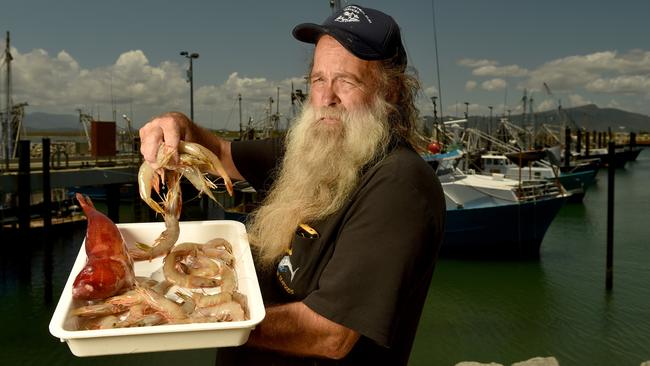
Lounds Fresh Seafood owner Col Lound holds grave concerns for Townsville’s tiger prawn season.
“Already all the live coral trout industry has disappeared. The buyers can’t buy, because they can’t sell,” Mr Lound said.
“It’s a concern as we start our tiger prawn season in March. They don’t traditionally go over (to China) until the second part of the year.
“If (coronavirus) holds on, that will be one massive downturn.”
Burdekin commercial fisherman and mud crabber Neil Green said reduced demand from the Asian export market for live mudcrabs and trout meant huge losses locally.
“We rely so heavily on Asians to buy particularly crustaceans and reef fish,” Mr Green said.
“Overall there is going to be huge losses to the commercial fishing industry and restaurants and seafood outlets as well.
“The crabs are just starting to move so it couldn’t have come at a worse time.”
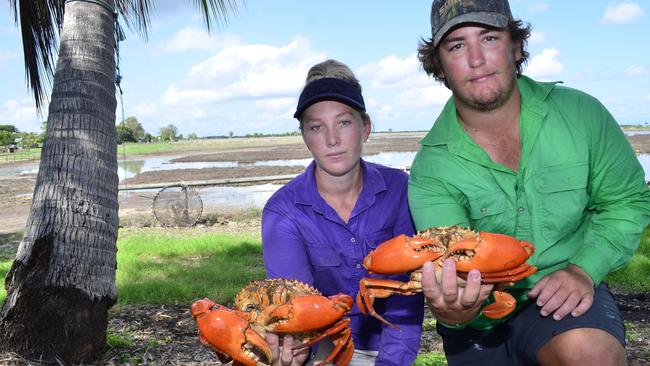
Queensland Seafood Industry Association senior vice president and chair Allan Bobberman said the drop in market price had seen some crabbers shut down completely.
“The cost of production and freight to get these crabs to the market … some crabbers have stopped crabbing. They have no choice,” he said.
Mr Bobberman said usually at this time of year, commercial crabbers could get about $50 a kilo for their catches.
“(But recently) I spoke to someone crabbing … the best price his buyer could offer them was $20,” he said.
Fisheries Minister Mark Furner said the State Government was aware of the impacts from coronavirus on seafood exports.
“We have arranged for industry stakeholders to join a briefing with the Premier and other affected industry groups (on Wednesday) and will work closely with industry to explore options,” he said.
“Fisheries Queensland is also liaising with fisheries agencies and peak bodies around Australia to ensure a co-ordinated approach.”
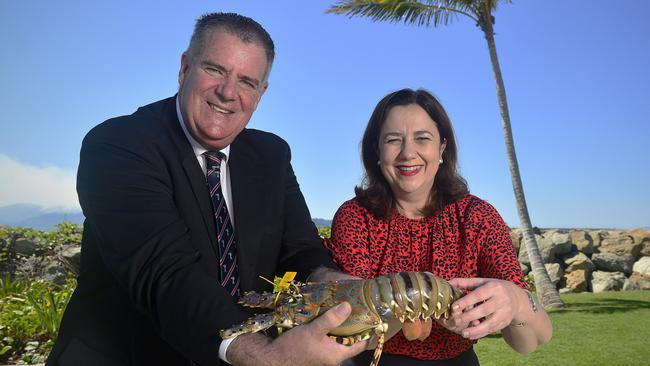
Federal Trade Minister Simon Birmingham told the Bulletin while there was “no ban” on Australia’s seafood exports because of coronavirus, there was a drop in demand.
“We’re aware that there has been reduced demand for particular fresh products over the Lunar New Year Period in China, given they tend to be delivered on a just-in-time basis,” Mr Birmingham said.
“This reduction in demand due to the coronavirus is not limited to Australian products. This is usually a high period of consumption, and with many events and celebrations being cancelled, demand for seafood products has reduced significantly.”
Mr Birmingham said the department would continue to work with industry “to manage this evolving situation”.
“We’re monitoring the situation very closely and last week I convened a meeting of seafood industry representatives to discuss the challenges they are currently facing,” he said.
FAST FACTS
- The main Queensland species exported live to China are coral trout and tropical rock lobster.
- The live coral trout market is worth at least $30 million a year.
- Rock lobsters account for at least $7 million a year.

Add your comment to this story
To join the conversation, please log in. Don't have an account? Register
Join the conversation, you are commenting as Logout
‘Fed up’: KAP deputy continues push for Northern suburbs road upgrades
Highlighting “congestion and inadequate infrastructure” along the roads connecting Townsville’s Northern suburbs, the KAP says urgent action is needed as a petition was tabled by state parliament.
“Reprehensible”: Man charged with 40 historical child sex offences
A man who allegedly committed 40 historical child sex offences has been arrested in Mount Isa, ending a five-month investigative operation.